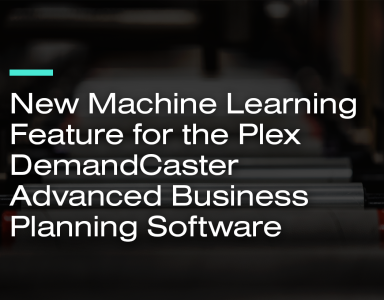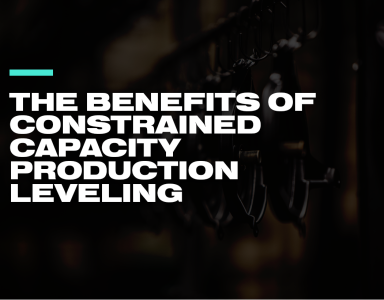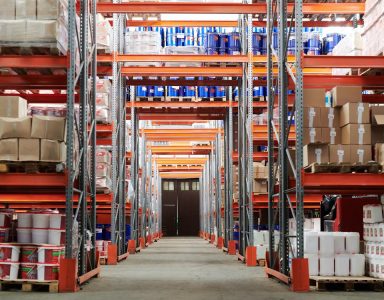
Optimizing inventory management and planning is essential to the bottom line of any manufacturing and product based business. Being able to forecast demand for product as well as potential disruptions to the supply chain process is not a matter of waving a magic wand. It takes hard data, interconnected and sourced from multiple platforms, to be able to see changes coming and optimize your supply chain accordingly. Artificial intelligence (AI) may very well become the key—the magic wand—to that interconnectivity.
Supply chain planning today
If your company is using a product like DemandCaster, you’ve gone from spreadsheets residing unshared in supply chain silos (sales, planning, provisioning) to a centralized, visible to all system, with near real-time data.
You have access to all the data you need but what you don’t have is a more automated way of reviewing it, as well as external data sources. There is still the human element involved in the process, which can be time consuming. The way of tomorrow’s world is similar but very much enhanced, particularly when it comes to supply chain planning (SCP), thanks to AI.
What is artificial intelligence, as it applies to SCP?
AI is, at its most basic level, about smart machines. In other words, machines that can do more than simply take in and spit out data but can actually leverage data from various sources and provide a reasoned response.
It will be valuable in supply chain planning in that it is faster than a human but has the same capacity to take data from multiple sources, evaluate it and come up with an answer to a problem. In the case of supply chain planning, the goal in implementing AI is to forecast future demand to respond to customers more quickly, more accurately, with less lead time.
AI can function to provide sources of knowledge into the demand planning or overall supply chain planning equation. No doubt at some point, your supply chain has experienced a disruption because of an external factor. Could you have predicted that sudden storms in the region that provides some of your raw materials would impact the availability of those resources in the near future? Possibly, if your planners had been looking for that information. The promise of AI is to be able to tap into that kind of information and use predictive reasoning to flag your planners on this possible disruption. Taking it a step further, it could decide to order more of the resource immediately, based on upcoming demand for the SKUs that require it. All without the intervention of humans.
Machine learning: a subset of AI that supply chain planning will soon need to leverage
Algorithms are the key to personalization on the internet, and so they can be as well in supply chain planning. With the ability to analyze data, find patterns and predict future patterns based on historical data, machine learning will be able to close some gaps in your supply chain planning that you might not even know you had. This can lead to tremendous cost savings from end to end of the supply chain, sales through to provisioning.
Machine learning can review your data on an almost constant basis, noting exceptions and in effect self-correcting the supply chain where there is a failure. By continually optimizing your supply chain in this way, you will be able to respond to customer demands quickly because inventory and demand planning will be one step ahead.
The point of AI isn’t to supplant the human planner, but to enhance their abilities by engaging in the data analysis that is time consuming and providing solid results that can be actioned quickly at all steps in the supply chain.
AI may not be a practical reality today for most, but the promise is strong and not far off to becoming an additional weapon in the supply chain planning arsenal.


